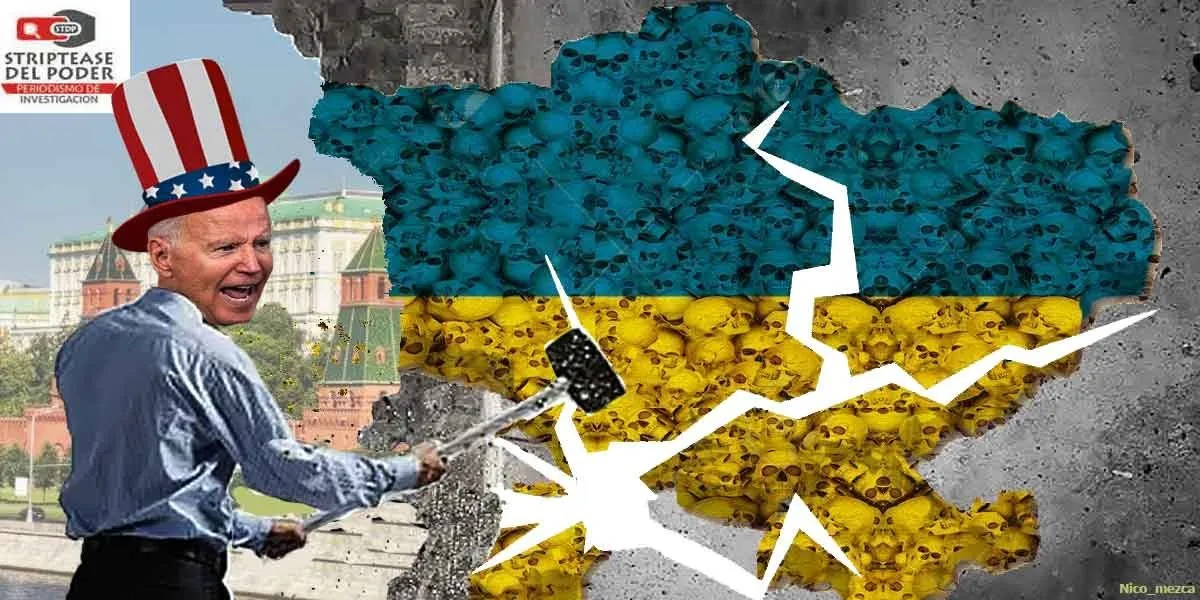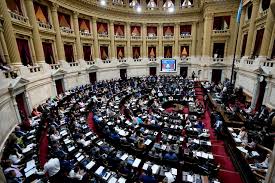What is the United States doing in Ukraine? The dangers of American arrogance

In a recent video that went viral, the elderly U.S. Senator Richard Blumenthal of the Democratic Party, said: “To my American compatriots, let me tell you one thing: in Ukraine they are enforcing their money. The Russian Army has been halved. Its strength has been reduced by 50% without the loss of a single American soldier and with less than 3% of our military budget. It’s quite a bargain in military terms.”
For his part, his Republican Party colleague Mitt Romney, supported him by saying: “I think it’s the best national defense spending we’ve ever made.” On his fourth trip to Ukraine, coinciding with Ukraine’s Independence Day (August 24), Blumenthal met with President Volodymyr Zelensky and senior Ukrainian officials, to again ratify U.S. support for Kiev.
Volodymyr Zelensky meets in Kiev with US Democratic Senator Richard Blumenthal
And he said: “Ukraine’s struggle for democracy and freedom against an unprovoked Russian invasion is our struggle. Putin will not stop with Ukraine and failure would only embolden our adversaries.” But in a subsequent interview with a Connecticut Post, the state he represents, leaving aside the declamations, he insisted with his economic militarist vision in favor of the United States saying: “Even Americans who have no particular interest in the freedom and independence of democracies around the world should be satisfied that we are getting the value of our money in our investment in Ukraine.”
However, Senator Blumenthal’s message is not univocal in the United States or in his Congress. In this regard, Thomas Massie, member of the United States House of Representatives for the Republican Party, said in his account in X: “it is immoral to speak with such insensitivity about Ukrainian and Russian lives, as if the massive casualties were an economic bargain because they are not American: How many families on each side have been left without siblings, fathers and husbands?”
In this regard, the long essay recently published in HARPER’S MAGAZINE, Why are we in Ukraine? – On the dangers of American arrogance” by the authors Benjamin Schwarz and Christopher Layne, of which Stripteasedelpoder.com then publishes its translation, is extremely interesting. In which its authors make a lucid criticism of US actions in Ukraine, showing the remarkable responsibility it has in relation to that tragic conflict, with which it has sought to plunge Russia into a new and deeper Afghanistan, willing to fight Russia “to the last Ukrainian,” and the enormous dangers that this entails for the world.
In the account of the incessant expansion of a NATO, at the exclusive service of the interests of the United States. They point out the interventionist messianism adopted by the United States, after triumphing in the Cold War against the USSR, in countries where supposedly “freedom reigns,” for alleged reasons of national security. They point out the double bevel they practice, in a world supposedly based on rules, which does not stand out for complying with them. Including the alteration by force of the borders of a sovereign state, as it did to the bombings with Serbia.
They also denounce the covert search by the United States for nuclear predominance, beyond their statements, for the purpose of leaving behind mutual nuclear deterrence, to detain a nuclear hegemony that allows it to impose conditions of submission, under the threat of a preventive nuclear attack.
They question that the US has crossed the last red line in its relations with Moscow, with the tacit incorporation of Ukraine into NATO. By denying the US that other countries claim to have “spheres of influence”, in order for their “sphere of influence” to spread and remain throughout the world, thus falling into the hubris or excess that would lead to the catastrophe.
They correctly compare the issue of Ukraine with Russia, with the missile crises with Cuba and the USSR, and how that left an unlearned lesson in certain sectors of the United States that have led them to arrogance. And he proposes that a new exclusively European security structure should replace a NATO, which in the service of the United States has misplaced its objectives, the one that said in Argentina was the one that promoted the Falklands War of 1982.
And he concludes by saying “The policies that Washington has applied towards Moscow and Kiev, often under the banner of righteousness and duty, have created conditions that make the risk of a nuclear war between the United States and Russia greater than ever. Far from making the world safer by putting it in order, we have made it even more dangerous.
Benjamin Schwarz has a degree in history from Yale University, was an analyst at the RAND Foundation, and has served as an editor in various media. For his part, Christopher Layne is an academic specializing in foreign policy, a professor in the Chair of Intelligence and Homeland Security at the University of Texas, and has served as an analyst at CATO Institute and RAN Corporation. Both adhere to the neo-realistic school in foreign policy.
Why are we in Ukraine? On the dangers of American arrogance
From Murmansk in the Arctic to Varna in the Black Sea, the armed camps of NATO and the Russian Federation threaten each other through a new Iron Curtain. Unlike the long twilight struggle that characterized the Cold War, the current confrontation is decidedly hot.
As former Secretary of State Condoleezza Rice and former Secretary of Defense Robert Gates acknowledge with approval, the United States is waging a power war with Russia. Thanks to Washington’s efforts to arm and train the Ukrainian army and integrate it into NATO systems, we are now witnessing the most intense and sustained military entanglement in the almost eighty-year history of global competition between the United States and Russia.
Washington’s rocket launchers, missile systems and drones are destroying Russian forces in the field; indirectly and otherwise, Washington and NATO are probably responsible for the preponderance of Russian casualties in Ukraine. Reportedly, the United States provided real-time battlefield intelligence to Kiev, which allowed Ukraine to sink a Russian cruiser, shoot at soldiers in its barracks and kill up to a dozen Moscow generals.
It is possible that the United States has already committed covert acts of war against Russia, but even if the report that blames the sabotage of the Nord Stream pipelines on a US naval operation authorized by the Biden Administration is wrong, Washington is on the verge of a direct conflict with Moscow. Surely, the nuclear forces of the United States and Russia, always ready, are in a high state of surveillance. Except for the Missile Crisis in Cuba, the risks of a rapid and catastrophic escalation in the nuclear confrontation between these superpowers are greater than at any other time in history.
For most American legislators, politicians and experts, liberals and conservatives, Democrats and Republicans, the reasons for this dangerous situation are clear. The president of Russia, Vladimir Putin, an authoritarian old man and thirsty for blood, launched an unprovoked attack against a fragile democracy.
To the extent that we can attribute coherent reasons for this action, they are found in Putin’s paranoid psychology, his mistaken attempt to raise his internal political position and his refusal to accept that Russia lost the Cold War. Putin is often described as fickle, deceived and irrational, someone with whom one cannot negotiate on the basis of national or political self-interest.
Although the Russian leader often talks about the security threat posed by the possible expansion of NATO, this is little more than a paring blade for his naked and inexplicable will to power. Therefore, trying to negotiate with Putin about Ukraine would be an error of the order of the attempts to “pacification” Hitler in Munich, especially since, to quote President Biden, the invasion came after “all the good faith efforts” of the United States and its allies. to involve Putin in the dialogue.
This conventional story is, from our point of view, both simplistic and selfish. It does not take into account the well-documented and perfectly understandable objections that the Russians have expressed towards the expansion of NATO in the last three decades, and obscures the central responsibility that the architects of US foreign policy. The U.S. has a dead end.
Both the global role that Washington has assigned to itself in general, as well as the specific policies of the United States towards NATO and Russia, have inexorably led to war, as many critics of foreign policy, including us, have warned for a long time that it would happen.
When the Soviets left Central and Eastern Europe at the end of the Cold War, they imagined that NATO could be dissolved along with the Warsaw Pact. Soviet President Mikhail Gorbachev insisted that Russia “would never agree to assign [NATO] a leading role in the construction of a new Europe.”
Recognizing that Moscow would see as a threat the continued existence of the main US mechanism to exercise hegemony, the President of France, Francois Mitterrand, and the Minister of Foreign Affairs of Germany, Hans Dietrich Genscher, set out to build a new European security system that transcended the alliances led by the United States and the Soviet Union that had defined a divided continent.
Washington would not accept any of that, insisting, quite predictably, that NATO remains “the dominant security organization beyond the Cold War,” as historian Mary Elise Sarotte has described the American political objectives of the time. In fact, a bipartisan foreign policy consensus within the United States soon adopted the idea that NATO, instead of “breaking,” would go “outside the area.”
See The provocation of the US, NATO, and Ukraine to Russia according to the Swiss strategist Jacques Baud
Although Washington had initially assured Moscow that NATO would advance “not an inch” to the east of a unified Germany, Sarotte explains, the slogan soon acquired a “new meaning”: “not an inch” of territory must be “outside the limits” of the alliance. In 1999, the Alliance added three countries to the former Warsaw Pact; in 2004, three more, in addition to three former Soviet republics and Slovenia. Since then, five more countries, the last being Finland,
Initiated by the Clinton administration while Boris Yeltsin served as the first democratically elected leader in the history of Russia, the expansion of NATO has been sought by each subsequent American administration, regardless of the tenor of Russian leadership at any given time.
Justifying this radical expansion of NATO, former senator Richard Lugar, who was once a prominent Republican foreign policy spokesman, explained in 1994 that “there can be no lasting security in the center without security in the periphery.” From the beginning, then, NATO’s expansion policy was dangerously open.
The United States not only arrogantly expanded its nuclear and security commitments while creating ever broader borders of insecurity, but it did so knowing that Russia, a great power with its own nuclear arsenal and an understandable resistance to be absorbed by a global order in the terms of the United States, was on that “periphery.”
Thus, the United States recklessly embarked on a policy that would “restore the atmosphere of the cold war in East-West relations,” as the venerable US foreign policy expert, diplomat and historian George F. had warned. Kennan. Writing in 1997, Kennan predicted that this movement would be “the most fateful mistake of American politics in the entire post-cold war era.”
Russia repeatedly and unambiguously characterized the expansion of NATO as a dangerous and provocative siege. The opposition to the expansion of NATO was “the only constant in what we have heard from all the Russian interlocutors,” the US ambassador in Moscow, Thomas R., told Washington. Pickering, thirty years ago.
All Kremlin leaders since Gorbachev and all Russian foreign policy officials since the end of the Cold War have strongly opposed – both publicly and privately Western diplomats – the expansion of NATO, first the former Soviet satellite states and then the former satellite states of the Soviet Union. Soviet republics.
The entire Russian political class, including Westernizing liberals and democratic reformers, has constantly echoed the same thing. After Putin insisted at the 2007 Munich Security Conference that NATO’s expansion plans were not related to “guaranteeing security in Europe,” but represented “a serious provocation,” Gorbachev reminded the West that “for us Russians, by the way, Putin was not saying anything new.”
From the early 1990s, when Washington first raised the idea of NATO expansion, until 2008, when the US delegation at the NATO summit in Bucharest advocated membership of the alliance for Ukraine and Georgia, exchanges between the United States and Russia were monotonous.
While the Russians protested Washington’s NATO expansion plans, US officials ignored those protests, or pointed them out as evidence to justify an even greater expansion.
Washington’s message to Moscow could not have been clearer or more disturbing: normal diplomacy between the great powers, which is distinguished by the recognition and reconciliation of conflicting interests – the approach that had defined the rivalry between the United States and the Soviet Union even during the most intense periods of the Cold War – was obsolete. Russia was expected to accept a new world order created and dominated by the United States.


